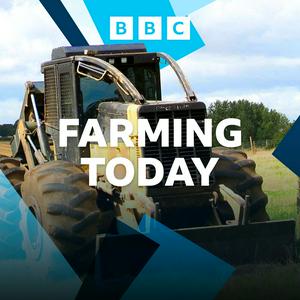No advertising. More Prime.
No advertising. More Prime.
No advertising. More Prime.
No advertising. More Prime.
The podcast starts in
- 0 sec.
27/02/26: Mackerel's off, Cromer Crab, Avian Flu update, Cambridge Vet School decision
26/02/26 The Farming Minister and reaction to the updated environmental farm payment scheme in England; illegal waste dumping
23/02/2026 England deer management plan, putting venison on more plates, Northern Ireland farm safety.



Farming Today